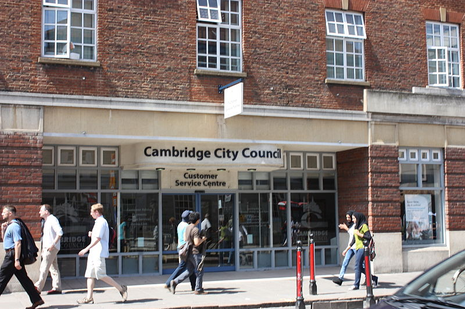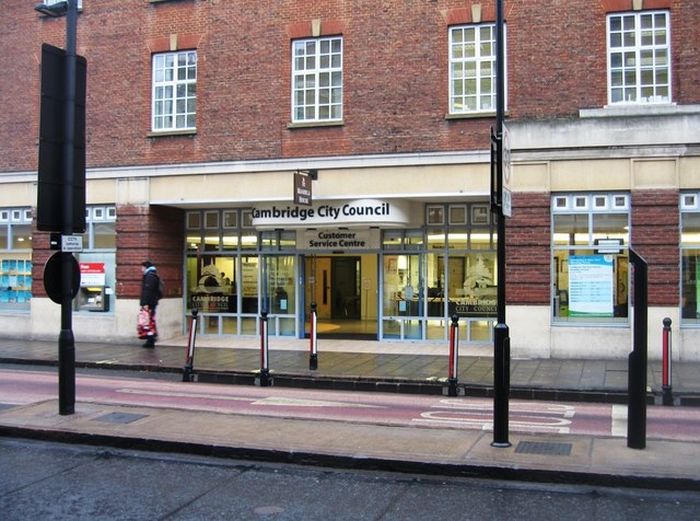Cambridge City Council welcomes Climate Commission report and sets target to be net-zero by 2030
The new strategy outlines a target for council buildings and vehicle mileage to become net-zero by 2030

The Cambridgeshire and Peterborough Climate Commission have published their initial findings and recommendations following investigations into the climate risks facing the area.
The Commission, established in 2020, drew upon the findings of public surveys, research, and existing examples of good practice in the area and elsewhere.
The report finds that greenhouse gas emissions are approximately 25% higher per person in the Cambridgeshire and Peterborough area than the UK average.
It argues that “significant investment” in infrastructure of £700 million annually is needed in the region over the next decade in order to achieve a “just transition.”
Cambridge City Councillor Rosy Moore, Executive Councillor for Climate Change, Environment and City Centre, said: “We welcome the Commission’s report which brings new data and expert analysis to our understanding of how climate change is affecting Cambridgeshire and Peterborough.”
Meanwhile, the city council has released its climate change strategy for the next five years, including a proposal for a net-zero target for 2030. The plan outlines goals for the council to reduce direct carbon emissions from its buildings, business mileage, and vehicle fleet, to achieve net-zero carbon by 2030.
Proposed measures include installing heat pumps and additional solar panels at council leisure centres, shifting to low carbon heating in corporate buildings, and purchasing ultra-low emission vehicles for the council fleet.
The council plan also outlines a “vision” for the city of Cambridge to be net-zero by 2030, emphasising their plans to enact local leadership structures to push for this achievement.
The new strategy also covers changes to council homes, stating that the council is investing £2.5 million over the next three years to improve the efficiency of existing houses.
The council has committed to building 1,000 new homes to ambitious Passivhaus standards from 2021 onwards.
It further plans to implement measures that will support a shift to electric vehicles. This includes the installation of 21 electric charging points for taxis, alongside previously introduced regulations requiring all taxis to be Ultra Low Emission Vehicles (ULEVs) or zero-emissions vehicles by 2028.
Councillor Rosy Moore, Executive Councillor for Climate Change, Environment and City Centre, said: “This new strategy sets an ambitious target for the Council’s direct emissions to be net-zero carbon by 2030, whilst maintaining vital services to the city. We plan to achieve this through further investment in low carbon solutions for our buildings and switching our fleet to electric vehicles and other low carbon alternatives.
“The strategy also shares a wider net-zero carbon vision for the city and sets out how the council will play its part in contributing to this, including setting high standards for new homes and buildings in the city, promoting sustainable food and a circular economy, and encouraging a shift to cycling, walking and low emissions vehicles.”
Responding to the new strategy, Councillor Josh Matthews, Liberal Democrat Spokesperson on Climate Change, said: “Actions speak louder than words—and for years there have been warm words from the Council, but only token actions, and measurable failures.”
He continued: “The council has not reduced its gas consumption; emissions reduction mostly comes from the national grid’s decarbonisation; recent new council houses are being built to lower sustainability standards than before; and finally, this year, a lack of maintenance is forcing the council to lock in fossil fuel emissions by replacing a huge gas boiler in the Corn Exchange.”
Previous efforts to set a 2030 date to become carbon neutral, suggested by Liberal Democrat councillors, had been voted down by Labour administration when proclaiming a ‘Climate Emergency’ in Cambridge in 2019.
News of the climate change strategy is largely in line with previously published budget figures for the 2021-22 year. The budget outlined a focus on green measures and recovery, including increased funding for installing extra electrical vehicle charging points, and investment in carbon reduction measures at swimming pools, identified as the council’s most significant energy users.
Since the publication of the new climate change strategy last Tuesday (16/03), the council has won government funding for their planned emission reduction measures at leisure complexes. The council has secured £1.7m in funding from the Public Sector Decarbonisation Scheme to reduce carbon emissions at its two biggest leisure centres by 30%.
The government scheme funds will enable the installation of energy-efficient and carbon-saving technology at Parkside Pools and Abbey Leisure Complex. This will save an estimated 440 tonnes of carbon each year, meaning a 7.7% overall decrease in the council’s total emissions.
 News / Police to stop searching for stolen Fitzwilliam jade17 April 2024
News / Police to stop searching for stolen Fitzwilliam jade17 April 2024 News / Night Climbers call for Cambridge to cut ties with Israel in new stunt15 April 2024
News / Night Climbers call for Cambridge to cut ties with Israel in new stunt15 April 2024 Interviews / ‘It fills you with a sense of awe’: the year abroad experience17 April 2024
Interviews / ‘It fills you with a sense of awe’: the year abroad experience17 April 2024 Sport / Kabaddi: the ancient sport which has finally arrived in Cambridge17 April 2024
Sport / Kabaddi: the ancient sport which has finally arrived in Cambridge17 April 2024 Features / Cambridge’s first Foundation Year students: where are they now?7 April 2024
Features / Cambridge’s first Foundation Year students: where are they now?7 April 2024






